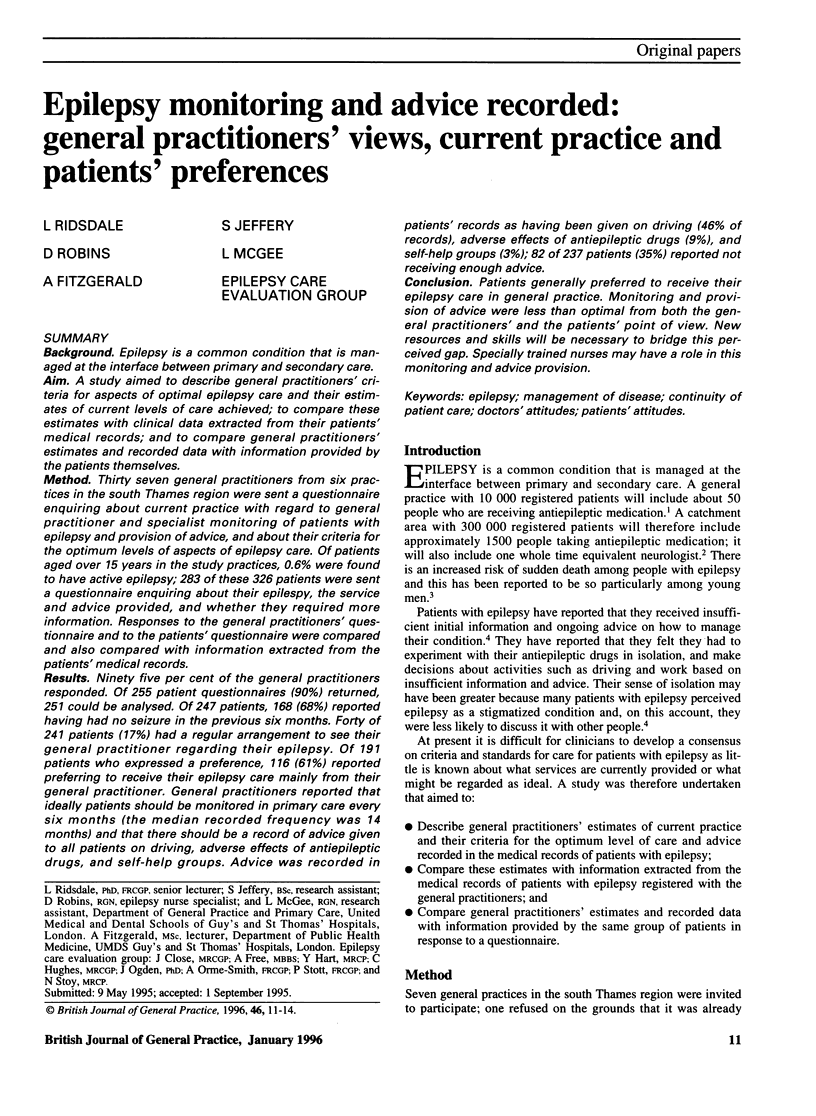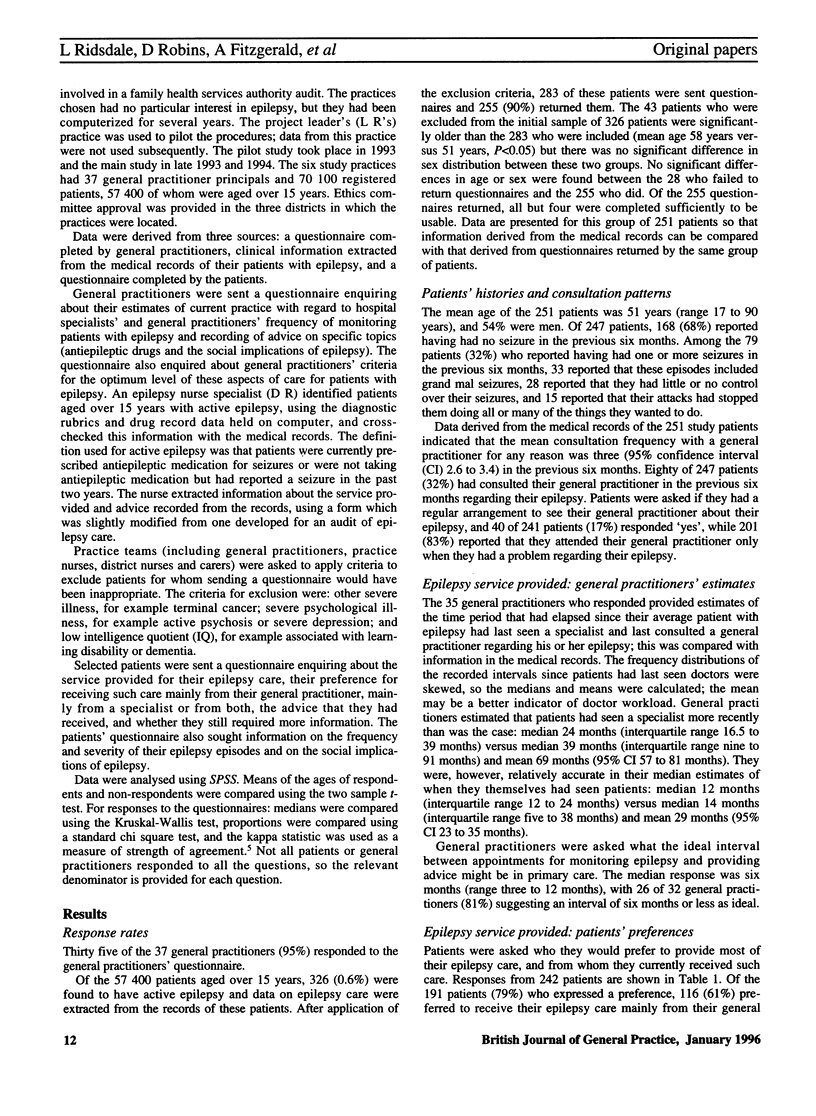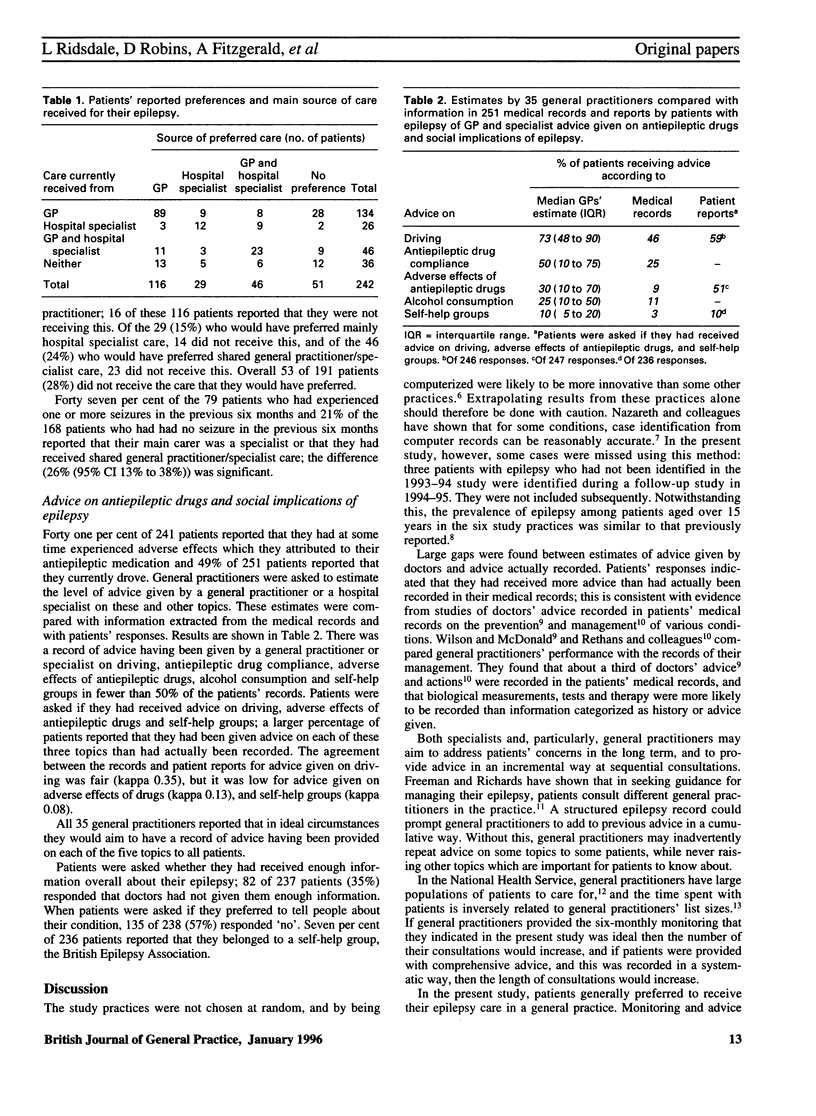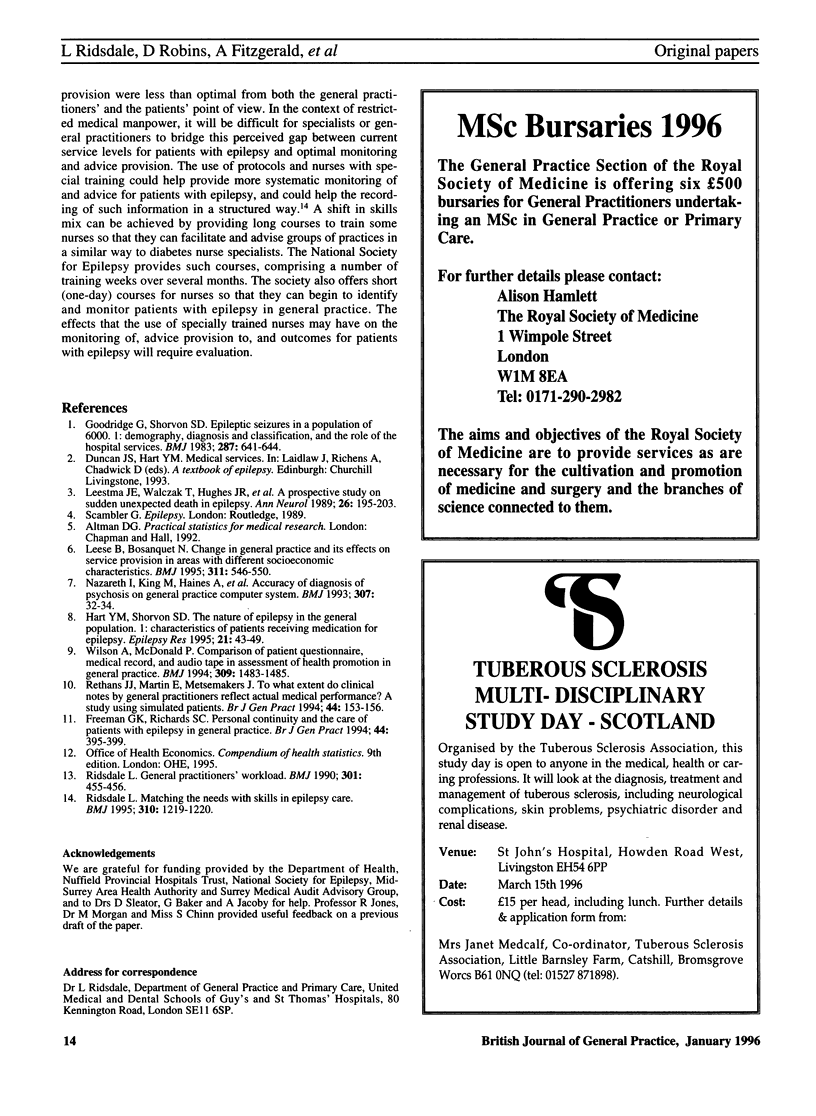Abstract
BACKGROUND: Epilepsy is a common condition that is managed at the interface between primary and secondary care. AIM: A study aimed to describe general practitioners' criteria for aspects of optimal epilepsy care and their estimates of current levels of care achieved; to compare these estimates with clinical data extracted from their patients' medical records; and to compare general practitioners' estimates and recorded data with information provided by the patients themselves. METHOD: Thirty seven general practitioners from six practices in the south Thames region were sent a questionnaire enquiring about current practice with regard to general practitioner and specialist monitoring of patients with epilepsy and provision of advice, and about their criteria for the optimum levels of aspects of epilepsy care. Of patients aged over 15 years in the study practices, 0.6% were found to have active epilepsy; 283 of these 326 patients were sent a questionnaire enquiring about their epilepsy, the service and advice provided, and whether they required more information. Responses to the general practitioners' questionnaire and to the patients' questionnaire were compared and also compared with information extracted from the patients' medical records. RESULTS: Ninety five per cent of the general practitioners responded. Of 255 patient questionnaires (90%) returned, 251 could be analysed. Of 247 patients, 168 (68%) reported having had no seizure in the previous six months. Forty of 241 patients (17%) had a regular arrangement to see their general practitioner regarding their epilepsy. Of 191 patients who expressed a preference, 116 (61%) reported preferring to receive their epilepsy care mainly from their general practitioner. General practitioners reported that ideally patients should be monitored in primary care every six months (the median recorded frequency was 14 months) and that there should be a record of advice given to all patients on driving, adverse effects of antiepileptic drugs, and self-help groups. Advice was recorded in patients' records as having been given on driving (46% of records), adverse effects of antiepileptic drugs (9%), and self-help groups (3%); 82 of 237 patients (35%) reported not receiving enough advice. CONCLUSION: Patients generally preferred to receive their epilepsy care in general practice. Monitoring and provision of advice were less than optimal from both the general practitioners' and the patients' point of view. New resources and skills will be necessary to bridge this perceived gap. Specially trained nurses may have a role in this monitoring and advice provision.
Full text
PDF



Selected References
These references are in PubMed. This may not be the complete list of references from this article.
- Freeman G. K., Richards S. C. Personal continuity and the care of patients with epilepsy in general practice. Br J Gen Pract. 1994 Sep;44(386):395–399. [PMC free article] [PubMed] [Google Scholar]
- Goodridge D. M., Shorvon S. D. Epileptic seizures in a population of 6000. I: Demography, diagnosis and classification, and role of the hospital services. Br Med J (Clin Res Ed) 1983 Sep 3;287(6393):641–644. doi: 10.1136/bmj.287.6393.641. [DOI] [PMC free article] [PubMed] [Google Scholar]
- Hart Y. M., Shorvon S. D. The nature of epilepsy in the general population. I. Characteristics of patients receiving medication for epilepsy. Epilepsy Res. 1995 May;21(1):43–49. doi: 10.1016/0920-1211(95)00007-w. [DOI] [PubMed] [Google Scholar]
- Leese B., Bosanquet N. Change in general practice and its effects on service provision in areas with different socioeconomic characteristics. BMJ. 1995 Aug 26;311(7004):546–550. doi: 10.1136/bmj.311.7004.546. [DOI] [PMC free article] [PubMed] [Google Scholar]
- Leestma J. E., Walczak T., Hughes J. R., Kalelkar M. B., Teas S. S. A prospective study on sudden unexpected death in epilepsy. Ann Neurol. 1989 Aug;26(2):195–203. doi: 10.1002/ana.410260203. [DOI] [PubMed] [Google Scholar]
- Nazareth I., King M., Haines A., Rangel L., Myers S. Accuracy of diagnosis of psychosis on general practice computer system. BMJ. 1993 Jul 3;307(6895):32–34. doi: 10.1136/bmj.307.6895.32. [DOI] [PMC free article] [PubMed] [Google Scholar]
- Rethans J. J., Martin E., Metsemakers J. To what extent do clinical notes by general practitioners reflect actual medical performance? A study using simulated patients. Br J Gen Pract. 1994 Apr;44(381):153–156. [PMC free article] [PubMed] [Google Scholar]
- Ridsdale L. General practitioners' workload. BMJ. 1990 Sep 8;301(6750):455–456. doi: 10.1136/bmj.301.6750.455. [DOI] [PMC free article] [PubMed] [Google Scholar]
- Ridsdale L. Matching the needs with skills in epilepsy care. BMJ. 1995 May 13;310(6989):1219–1220. doi: 10.1136/bmj.310.6989.1219. [DOI] [PMC free article] [PubMed] [Google Scholar]
- Wilson A., McDonald P. Comparison of patient questionnaire, medical record, and audio tape in assessment of health promotion in general practice consultations. BMJ. 1994 Dec 3;309(6967):1483–1485. doi: 10.1136/bmj.309.6967.1483. [DOI] [PMC free article] [PubMed] [Google Scholar]


